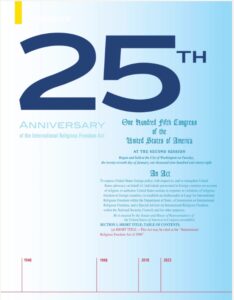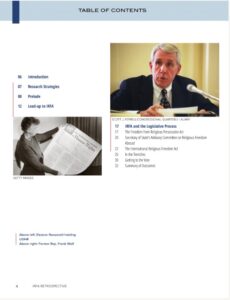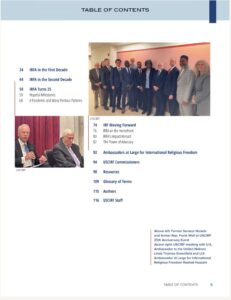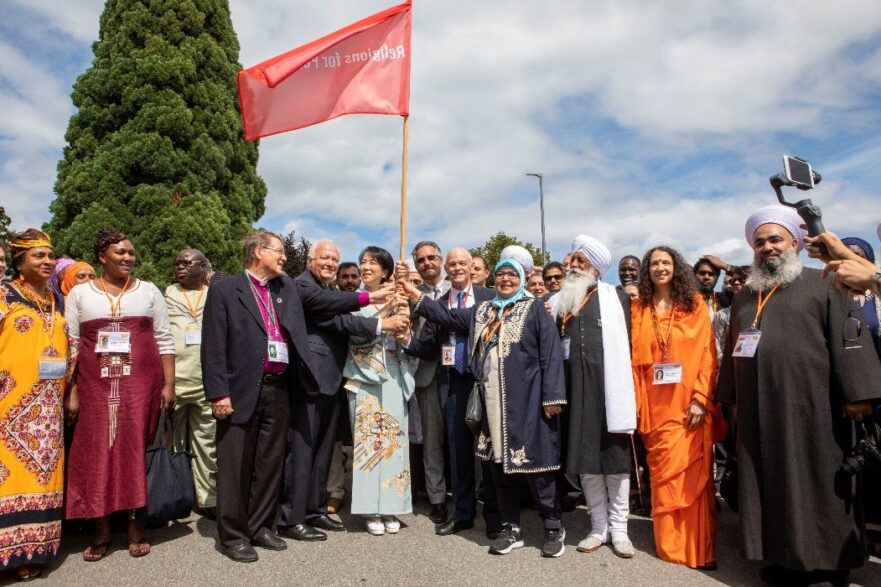The International Religious Freedom Act, a transformative piece of legislation, was written, debated, re-written and nearly left for dead before Congress voted unanimously for its passage in the fall of 1998. The United States Commission on International Religious Freedom (USCIRF) has published The 25th Anniversary of the International Religious Freedom Act: A Retrospective. This publication, co-authored by Lou Sabatier, 21Wilberforce Director of Communications, and freelance writer Erin Rodewald, captures the historical context and the collaborative efforts needed to pass the law that has driven considerable human rights initiatives over the past 25 years.

Signed into law on October 27, 1998, by then-President Bill Clinton, the IRF Act established the framework to elevate religious freedom as a priority within U.S. foreign policy. Among other provisions, the law created the Office of International Religious Freedom within the U.S. Department of State, as well as the position of Ambassador-at-Large for International Religious Freedom. It also established the independent, bipartisan U.S. Commission on International Religious Freedom (USCIRF) and ensured annual reporting of the status of religious freedom worldwide.


The retrospective includes candid conversations and observations culled from more than 109 interviews with prominent international religious freedom stakeholders, from elected officials and foreign policy experts to human rights and grassroots advocates and academics. It features historical photos, an intertwining timeline, and a narrative that explores the effectiveness of the IRF Act — what has worked, what has fallen short, and the mistakes and milestones made along the way.
It concludes with a section focused on the future of IRF advocacy in the US and abroad. The digital PDF version of the publication includes hyperlinks to dozens of original source documents, including legislation, policy and committee reports, congressional hearings, and news analysis.
The Retrospective is a valuable resource for educators, researchers, civil society advocates, faith leaders and government officials who understand the importance of the IRF Act. Looking to the future and the challenges in advancing religious freedom, USCIRF Commissioner David Curry said, “People have to move forward and set down their own desire to stay in their silos. We need to share information, friendships, and relationships. We want to be cooperative for the betterment of mankind.”

